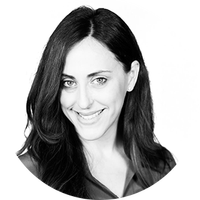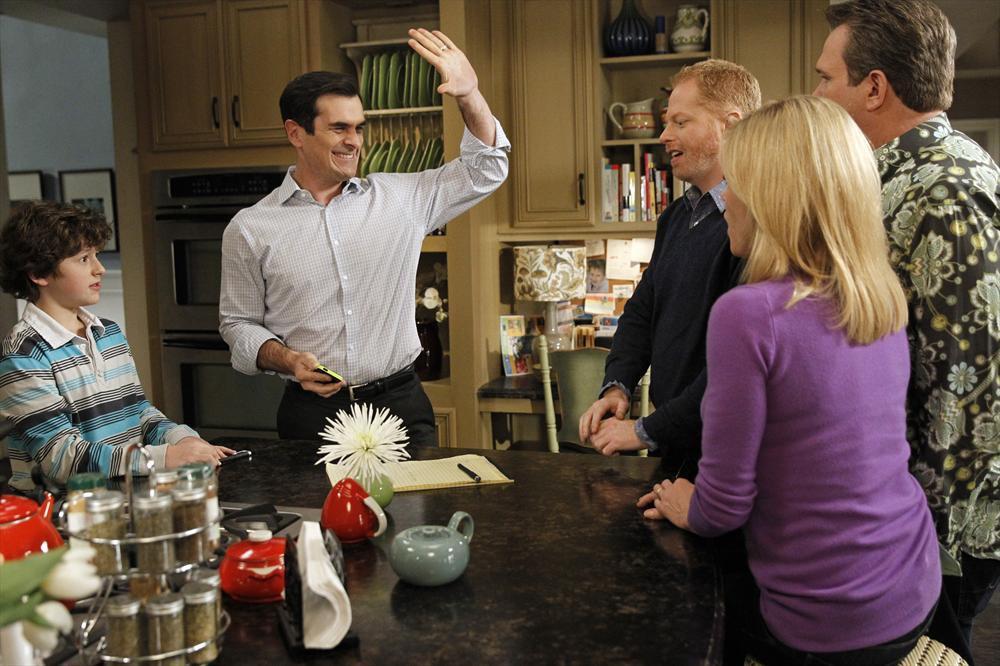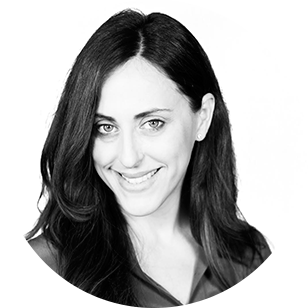Enough with the doofus dad jokes
This Father's Day, let's finally kill off this idiotic cliche


A free daily email with the biggest news stories of the day – and the best features from TheWeek.com
You are now subscribed
Your newsletter sign-up was successful
This Father's Day, let's all pool our resources and get dads something they could really use: an end to all inept dad jokes. It's something they'd appreciate years later and, like all the best gifts, it would ultimately benefit the whole family.
The hapless dad has been a mainstay of pop culture for years. He can be seen in long running shows like The Simpsons, Family Guy, newer ones like Modern Family, movies like last year's Mom's Night Out, and countless commercials that feature dads using a cleaning or baby product to bail them out of a tough spot. (When commercials from those same companies feature moms, they're often using these same products to achieve perfection. Cue animated sparkle on a porcelain white sink.)
Just this past week, RadioNow, a station out of Indianapolis, shared an oh-so-clever montage they titled "Mom vs. Dads" on Facebook. In it we see a series of paired photos, each set featuring one picture labeled mother and the other labeled father. With every one we get an image of mother as the diligent A-student parent, focused exclusively on her child's needs. The fathers, on the other hand, are presented mainly as in pursuit of fun alongside their children, laced with a few examples of benign neglect. The montage has nearly 90,000 shares and nearly the same number of likes. I am, most certainly, not one of them.
The Week
Escape your echo chamber. Get the facts behind the news, plus analysis from multiple perspectives.

Sign up for The Week's Free Newsletters
From our morning news briefing to a weekly Good News Newsletter, get the best of The Week delivered directly to your inbox.
From our morning news briefing to a weekly Good News Newsletter, get the best of The Week delivered directly to your inbox.
In his new book All In: How Our Work-First Culture Fails Dads, Families, and Businesses — And How We Can Fix It Together, journalist Josh Levs explains that in the early years of television father was a wise, detached figure. Think Leave it to Beaver. Then as the sitcom rose in popularity, TV writers began to subvert that ideal for a laugh, and those once noble fathers turned into a bunch of dummies.
Levs' book is an argument for changing the way we treat fathers, three-quarters of whom say they want more time with their kids. Inspired by his own fight for paternity leave, he explores the shifts in policy and pop culture, including an end to the hapless dad figure, that have to take place before fathers can have work/life balance too.
It's important to add that these changes wouldn't just encourage men to take a larger role in raising their children, but they would also likely help women reconsider their roles as mothers, too.
We humans are drawn to categories — binaries as today's more academic and politically correct might be inclined to say. From the Bible's story about the seven days of creation as a series of separations — light from dark and land from sea — to Kant's more conceptual take on categorization, our minds gravitate towards classification. The way we view moms as responsible and dads as well-meaning doofuses is a perfect example of how we create such categories and how they only hurt us.
A free daily email with the biggest news stories of the day – and the best features from TheWeek.com
Last month Judith Shulevitz wrote an op-ed in The New York Times about how moms are still the designated worriers in the family, meaning that "mothers draft the to-do lists while fathers pick and choose among the items." There is indeed plenty to think about when making sure our children are taken care of, and the mental exhaustion mothers feel from playing command central is very real.
Still, while more of mothers' worries are born out of necessity, there is also a good amount rooted in vanity. The fact is, women still have much more of their identities, and therefore egos, bound up in their children. Parenting is still pretty much the only realm in which women have greater access to power than men. As a result, they end up overdoing things, often to their own detriment.
Cue the new all-in dad. He may not be inept, but he doesn't have the same cultural baggage mom does when it comes to living through one's children. He can be goofy, forget to sign up for swim class, and show up late to a birthday party with a kid in a dirty shirt and nobody expects an existential crisis to ensue.
Get rid of the inept dad jokes and we don't only free dads up to be better parents, we also free moms to relax a little — and that just might make moms better parents too.
Elissa Strauss writes about the intersection of gender and culture for TheWeek.com. She also writes regularly for Elle.com and the Jewish Daily Forward, where she is a weekly columnist.
